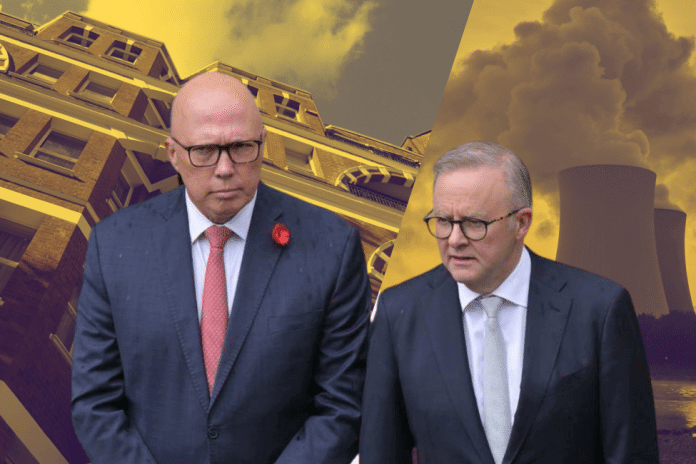As the 2025 Federal Election campaign meanders to its inevitable close, the two burning issues for Australians at large have been housing challenges and energy prices. Neither major party has come up with viable solutions. In fact, this election has become a textbook example of how to make sweeping statements without offering any real substance.
Experts agree there are feasible solutions to these two pressing challenges – but implementing them on a national scale requires either strong, decisive leadership, or genuine bipartisan cooperation across the political divide. In today’s climate, bipartisan cooperation seems unlikely – as evidenced by the sharp divisions during the Indigenous Voice to Parliament referendum. And with the rise of online vitriol and ‘keyboard warriors’, it’s increasingly doubtful whether any political leader has the courage to drive real, transformative change.
Looking back at key moments in Australia’s political history, one must remember February 2008, when Prime Minister Kevin Rudd issued a formal apology to Indigenous Australians, particularly the Stolen Generations. John Howard deserves recognition for two landmark achievements: the 1996 gun reforms and the 2000 introduction of the GST. Earlier, in the mid-1980s, the Hawke-Keating government ushered in financial deregulation and the compulsory superannuation system. Each of these reforms represented bold leadership and a commitment to shaping the nation’s future.
Today, any meaningful debate on housing must begin with a fundamental question: is housing a basic social necessity, or is it primarily a vehicle for wealth creation? Over the past 30 years, property has widely become a pillar of wealth creation. Governments have offered all sorts of tax concessions – tax deductions and discounts in capital gains tax, and opened more doors through vehicles such as superannuation funds – to excite people to invest in property. The emergence of platforms like Airbnb has added to the lure of property as investment.
Currently, 1.2 million Australians – 60% of whom earn a taxable income under $80,000 per year – benefit from government and tax incentives that encourage continued investment in property. It’s doubtful that any political leader would risk any policies that might dampen the aspirations of the voter group categorised as ‘the Aussie battlers’ to create ever-expanding property portfolios.

Electricity and energy prices are hurting all Australians and businesses. What both sides are offering are band-aid solutions at best; neither is showing any signs of addressing the root of the problem, that foreign companies have in place lucrative contracts which give them access to cheap gas in Australia.
Australia has consistently ranked among the top three global exporters of LNG, alongside Qatar and the United States, with key sale markets including Japan, South Korea, and India.
Despite this abundance, foreign companies operating these exports continue to reap profits from their international operations. Ironically, Australian gas is often sold at lower prices overseas – such as in Japan – than it is domestically, highlighting a deeply flawed energy pricing system.
At the risk of hurting investments or existing contracts, political leaders need to go deeper into this issue and take the fight on for all Australians. No bold leadership
Housing and energy continue to remain political kryptonite for both major parties this election, and possibly beyond.
READ MORE: Revealed: How the Indian community is likely to vote





